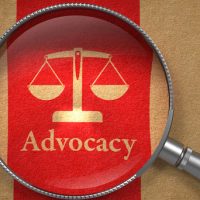Effective Use of Expert Witnesses During a Criminal Prosecution

When it comes to modern criminal trials, forensic science often carries an aura of certainty. Jurors have grown up watching television crime dramas. They tend to believe that DNA is irrefutable, fingerprints are unassailable, and ballistics always tell the truth. But in real life, the issues are rarely that simple. Many “scientific” methods that are used by prosecutors are far less reliable than they appear. The difference between a conviction and an acquittal can depend on whether the defense can expose weaknesses in the science. That’s where a skilled forensic expert can be crucial.
The myth of infallible forensics
Much of what passes for forensic science relies on human interpretation. There can be multiple different interpretations generated by the same data. The National Academy of Sciences and the President’s Council of Advisors on Science and Technology have both warned that several long-accepted forensic techniques are pseudo-scientific. Even DNA evidence, which is largely considered sacrosanct, can be mishandled, contaminated, or misinterpreted.
Despite obvious flaws, prosecutors frequently present forensic results as definitive proof of a defendant’s guilt. A single lab report might have the final word, even though it rests on assumptions or flawed methodology. Without an expert witness to challenge those claims, juries won’t see the full picture.
How a forensic expert can strengthen your defense
A strong defense generally uses forensic experts not merely to rebut the prosecution’s evidence, but rather to reconstruct what actually happened. An independent expert can:
- Review lab procedure to identify contamination, cross-sample errors, or biased interpretation.
- Re-test physical evidence using more accurate or updated methods.
- Explain limitations to jurors. For example, a DNA mixture from multiple people can be statistically ambiguous.
- Highlight chain-of-custody problems by showing that evidence could have been altered or mishandled.
- Challenge digital forensics, including unreliable cell-tower “location” data or misinterpreted device logs.
The right expert can transform complex science into clear testimony, helping jurors understand that “science” in the courtroom isn’t always objective. In some cases, it’s shaped by the interpreter.
What prosecutors won’t tell you
It’s distinctly possible that the prosecution will resist disclosing the full scope of their forensic testing. They might withhold inconclusive results, minimize the margin of error, or fail to mention how internal lab audits indicated inaccuracy. Some law enforcement labs operate under intense caseloads. They deal with institutional pressure to produce usable results. This can unconsciously bias lab techs toward findings that confirm the defendant’s guilt.
A skilled Tallahassee criminal defense lawyer knows when to dig deeper. Florida law allows the defense to request discovery of lab notes, raw data, and technician qualifications. Such materials can reveal inconsistencies or alternative explanations that have been overlooked.
Talk to a Tallahassee, FL, Criminal Defense Lawyer Today
Luke Newman, P.A., represents the interests of Tallahassee residents who are facing serious charges. Call our Tallahassee criminal defense lawyers today to schedule an appointment, and we can begin discussing your next steps right away.




